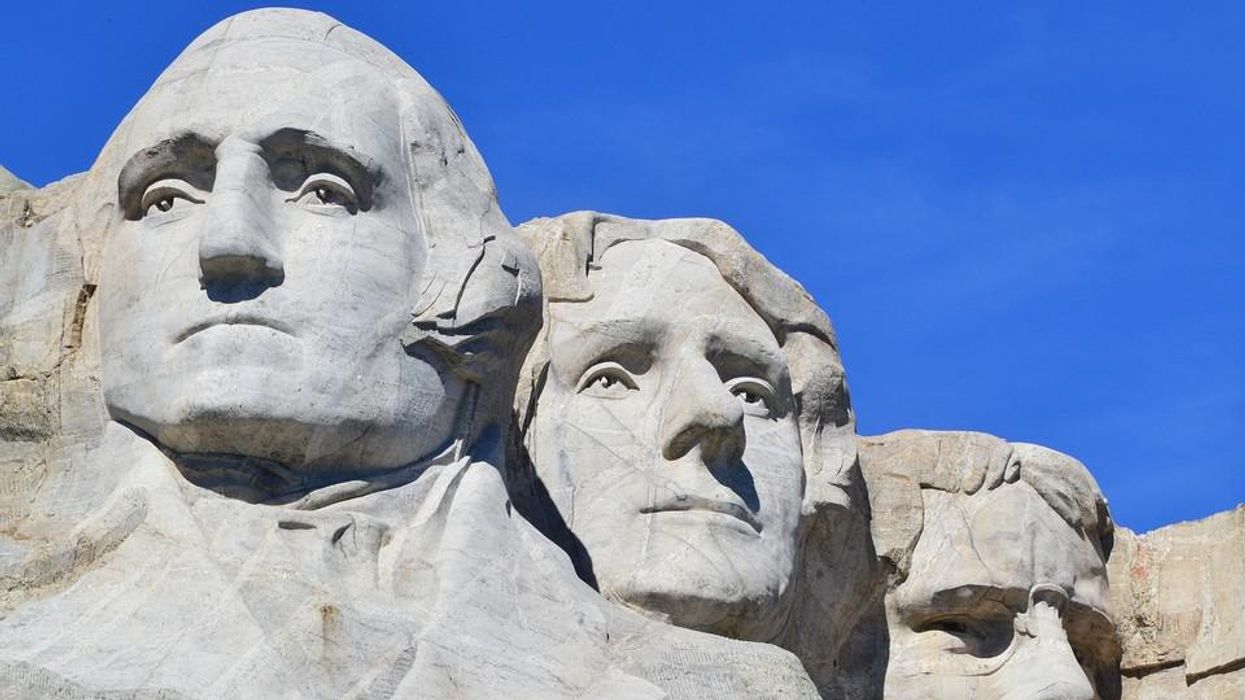Why General Lee Doesn't Deserve A Statue But Jefferson Does
Reprinted with permission from Creators
In New York City, a statue of Thomas Jefferson has graced the City Council chamber for 100 years. This week, the Public Design Commission voted unanimously to remove it. "Jefferson embodies some of the most shameful parts of our country's history," explained Adrienne Adams, a councilwoman from Queens. Assemblyman Charles Barron went even further. Responding to a question about where the statue should go next, he was contemptuous: "I don't think it should go anywhere. I don't think it should exist."When iconoclasts topple Jefferson, they seem to validate the argument advanced by defenders of Confederate monuments that there is no escape from the slippery slope. "First, they come for Nathan Bedford Forrest and then for Robert E. Lee. Where does it end? Is Jefferson next? Is George Washington?"
No historical figure is without blemish, they protest. And it's unfair to condemn our ancestors using today's standards. If owning slaves is the discrediting fact about Lee, how then can we excuse George Washington? As if on cue, "TFG" chimed in with a statement chiding the city for "evicting" the "late, great Thomas Jefferson, one of our most important founding fathers." Not so important, apparently, that former President Donald Trump felt the need to learn about him though, because the next phrase was "a principal writer of the Constitution of the United States." Sigh. No, Jefferson was in Paris during the Constitutional Convention. He authored another founding document Trump hasn't read. But never mind.
There is an answer — a reason why it's right to remove Robert E. Lee from his pedestal in Richmond, Virginia, yet wrong to exile Thomas Jefferson from a place of honor in American life. It requires grappling with the full complexity of human beings and the mixed legacy of history. We must, as William Shakespeare said, "Take them for all in all," that is, judge them for their entire lives, not just a part.
People who defend monuments to Lee on the grounds that he played an important role in our history are confusing significance with honor. Lee surely played a huge role in our history, but as the leader of an army whose aim was to destroy the union. That made him a textbook traitor. As Ulysses Grant put it in his memoir, recalling his feelings upon accepting Lee's surrender at Appomattox Court House, Lee had fought "valiantly" but for a cause that was "one of the worst for which a people ever fought, and one for which there was the least excuse."
Is it fair to judge Lee by our modern standards? Perhaps not, but even by the standards of his own day, he is wanting. Much has been made of Lee's supposedly agonizing decision to resign his U.S. Army commission because he could not "raise my hand against my birthplace, my home, my children." But others, including Gen. Winfield Scott, who offered Lee command of the Union army in 1861, also hailed from Virginia, yet remained loyal, as did Virginian Gen. George Henry Thomas, the "Rock of Chickamauga," and an estimated 100,000 white Southerners who fought for the Union.
Lee's image has been sanitized and even beatified by purveyors of the "Lost Cause" narrative about the Confederacy. They've depicted Lee as an upright, chivalrous defender of tradition, a moral man and a Christian. But, as Adam Serwer reminds us, Lee was a cruel slave master. In the words of Wesley Norris, one of his slaves who attempted to escape and was whipped, "Not satisfied with simply lacerating our naked flesh, Gen. Lee then ordered the overseer to thoroughly wash our backs with brine, which was done." As the leader of the Army of Northern Virginia, Lee enslaved all of the Black Union soldiers he captured as well as free Black Pennsylvanians his army encountered.
As the author of the Declaration of Independence, Jefferson enshrined the ideals that made this nation. Jefferson's words formed our national identity as free people and marked a departure in human affairs. A 19th-century Hungarian nationalist, Lajos Kossuth, called the American Declaration of Independence "the noblest, happiest page in mankind's history."
Was Jefferson a hypocrite? Oh, yes. One of history's most flamboyant. He owned slaves and almost certainly fathered children with his dead wife's half sister, Sally Hemings, an enslaved woman. But he never defended the institution (as Lee did), quite the contrary. He wrote, "I tremble for my country when I reflect that God is just."
Do we overlook Jefferson's shameful private behavior? No, but we take him in full. His contribution to human liberty, despite his personal behavior, entitles him to a place of honor. There will always be an asterisk, but to say that statues honoring him "shouldn't exist," as the New York City assemblyman did, is to dismiss the Declaration, the American anthem.
As for George Washington, there would have been no nation to criticize or lionize without him. If Jefferson was the poet laureate of liberty, Washington was the living exemplar of republican virtue. Having led the revolution, he could have proclaimed himself king or dictator. Some urged him to do so. When King George III was told by the American artist Benjamin West that Washington intended to resign and return to private life after winning his country's freedom, the king said, "If he does that, he will be the greatest man in the world."
He was. Many a revolutionary leader came after him. Most became despots in turn. None has achieved his greatness.
Yes, Washington held human beings in bondage, and that was terrible. Owning slaves is a blight on his record, but the rest shines bright. No nation that has judgment — and gratitude — can fail to honor him forever.
Mona Charen is policy editor of The Bulwark and host of the "Beg to Differ" podcast. Her most recent book is Sex Matters: How Modern Feminism Lost Touch with Science, Love, and Common Sense."To read features by other Creators Syndicate writers and cartoonists, visit the Creators Syndicate webpage at www.creators.com.
Photo credit: mercuryatlasnine at Pixabay












